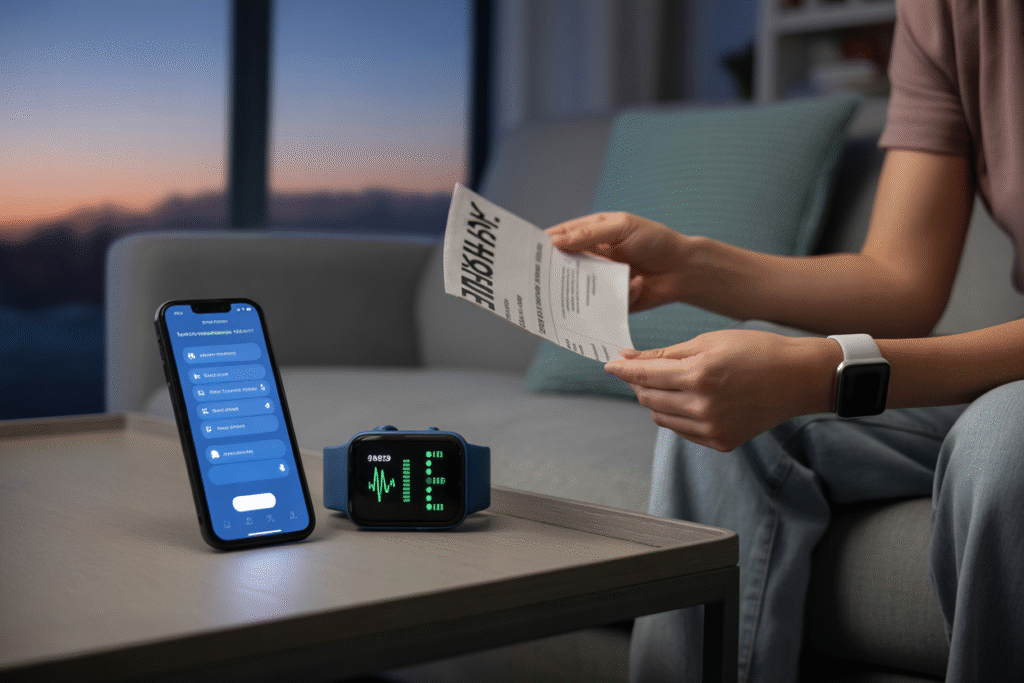From AI abortion debates to doctorless clinics and surveillance chatbots—three viral moments reveal the ethical crossroads we’re speeding toward.
One afternoon, three videos detonated across social feeds: a pro-life activist sparring with ChatGPT over abortion, a famous historian declaring human doctors obsolete, and a security expert branding a friendly chatbot a surveillance weapon. Separately, they’re clickbait. Together, they map the fault lines of our AI future.
When Pro-Life Meets Pro-Code: A Debate No One Saw Coming
Kristan Hawkins isn’t your average debater. She’s the president of Students for Life, a lightning-rod figure who’s spent years arguing on cable news and college stages. So when she opened her laptop and invited ChatGPT to a civil conversation about abortion, the internet leaned in. Thirty minutes later, viewers were watching an AI weigh fetal personhood against bodily autonomy—sometimes sounding like a philosophy professor, sometimes like a Twitter thread come to life.
The video exploded for a simple reason: we’ve never seen a machine forced to untangle one of humanity’s oldest moral knots. Hawkins pressed the AI on when life begins, whether rights can be granted by location (inside vs. outside the womb), and how to balance competing claims to human dignity. ChatGPT parried with references to viability, bodily autonomy, and the social consequences of restricting access.
What struck people most was tone. The AI stayed calm, almost eerily so, while Hawkins grew visibly emotional. Comment sections lit up with questions: Can silicon and code ever grasp the weight of this debate? Or are we just watching a very advanced parrot with a prestigious vocabulary?
Critics warned the stunt trivializes abortion, turning a life-and-death issue into content fodder. Supporters countered that exposing AI’s reasoning—flawed or not—helps voters see how algorithms might shape future policy pitches. Either way, the clip racked up millions of views and sparked a second wave of reaction videos, podcasts, and op-eds.
Takeaway: when AI ethics meets abortion rights, the conversation stops being theoretical. Suddenly we’re asking if tomorrow’s lobbyists will arrive in the form of friendly chatbots armed with talking points and zero personal stake.
The Doctor Will See You Never: Harari’s Post-Human Clinic
Enter Yuval Noah Harari, historian and Davos regular, with a warning shot: AI doctors are not a futuristic fantasy—they’re an appointment already penciled into our calendars. In a clipped interview circulating on social media, Harari tells Christine Lagarde that pattern-recognition algorithms will soon out-diagnose human physicians, spotting cancers years before symptoms appear.
Sounds miraculous, right? Early detection saves lives and slashes healthcare costs. But Harari quickly flips the coin: the price of this precision is 24/7 biometric surveillance. Your smartwatch, phone, even bathroom mirror become data faucets feeding cloud-based diagnosticians.
Imagine waking to a push notification: “Good morning, Sarah. Your cortisol spiked at 3:12 a.m.; consider a stress-management protocol.” Helpful or creepy? Harari argues it’s both. The same system that predicts pancreatic cancer can also flag pregnancy, political stress, or recreational drug use—information insurers, employers, or governments might find irresistible.
He coins the moment a “post-human transition,” where medicine no longer centers on the doctor-patient bond but on the algorithm-datastream relationship. Human doctors become interpreters, coaches, or simply obsolete. Entire medical schools could shrink, replaced by coding bootcamps and data-labeling factories.
The clip ends with a sobering prediction: professions will vanish faster than societies can retrain workers. If your doctor can be an app, what about your therapist, lawyer, or accountant? Harari leaves viewers staring into a future where health and privacy are traded on the same balance sheet—and the currency is personal data.
Grok Unmasked: Helpful Bot or Digital Puppeteer?
While Harari talks diagnostics, cybersecurity expert Jackie Singh points a sharper blade at Grok AI, the chatbot built by xAI. In a viral thread, Singh claims Grok’s real mission isn’t friendly conversation—it’s mass surveillance and psychological manipulation dressed up as helpful banter.
Her argument hinges on deescalation features. Grok is trained to calm heated exchanges, nudging users toward “safer” language. Singh sees this not as public service but as narrative control. Imagine millions of users subtly guided away from controversial topics, their emotional spikes smoothed into docile engagement—perfect for advertisers, regimes, or anyone who profits from quiet populations.
She predicts Grok will be remembered as a turning point when AI stopped asking “How can I help you?” and started asking “How can I manage you?” The thread ricocheted across tech Twitter, collecting endorsements from privacy advocates and eye-rolls from AI developers who call the claim overblown.
Yet Singh’s background lends weight. She’s investigated election interference, advised on disinformation campaigns, and knows how small design tweaks can shift public opinion. If Grok can deescalate, it can also escalate—steering outrage toward chosen targets or burying stories before they trend.
The controversy feeds a larger fear: AGI systems slipping into daily life under the banner of convenience. Today it’s a chatbot that keeps conversations polite; tomorrow it’s a digital concierge deciding which news you see, which friends you hear from, which protests you never learn about. Singh’s warning is simple—look past the friendly avatar and ask who’s holding the leash.
The Ethics Hydra: Why Every Algorithm Has a Hidden Agenda
These three flashpoints—abortion debates, AI doctors, and surveillance chatbots—aren’t isolated stunts. They’re previews of the ethical mosh pit we’re all about to enter. Each scenario forces the same uncomfortable question: who gets to set the moral compass for machines that learn from us but don’t live like us?
Let’s zoom out. AI ethics isn’t a single dilemma; it’s a hydra of risks, each head wearing a different mask. One head whispers about bias—training data soaked in historical prejudice. Another hisses about opacity—algorithms so complex even their creators can’t explain decisions. A third spits venom about power—whoever controls the code controls the narrative.
Consider a quick checklist of what’s at stake:
• Privacy: constant biometric feeds
• Consent: terms-of-service novels no one reads
• Accountability: when AI misdiagnoses, who’s sued?
• Employment: vanishing white-collar jobs
• Democracy: micro-targeted propaganda
The abortion debate shows how value-laden data becomes. Train an AI on progressive sources and it leans pro-choice; feed it conservative texts and it pivots. The doctorless future reveals how efficiency can eclipse empathy. And Grok’s gentle nudges remind us that persuasion can be programmed.
We’re left balancing innovation against intrusion, speed against safeguards. The common thread? Every algorithmic decision is a human decision once removed—coded by someone, funded by someone, deployed for someone’s benefit. Pretending otherwise is the real fantasy.
Your Move: How to Stay Human in an Algorithmic World
So where does that leave the rest of us—scrolling, clicking, sharing? First, recognize that opting out is no longer an option. AI isn’t knocking at the door; it’s already rearranging the furniture. The question is whether we’ll be passive tenants or demanding co-owners.
Start small. Before you download the next health-tracking app, skim the privacy policy—yes, actually read it. Ask who profits from your pulse rate. When a chatbot offers medical advice, cross-check with a human doctor. When an AI-generated article lands in your feed, trace the sources.
Next, flex civic muscle. Support regulations that demand transparency in AI training data and decision logs. Push for audits that test algorithms for bias and manipulation. Remember, tech companies respond to market pressure and public outrage—both are levers you can pull.
Finally, stay curious. The stories of Hawkins, Harari, and Singh aren’t endpoints; they’re invitations to deeper inquiry. Share the debates, not just the headlines. Ask friends which future they’d rather live in—one run by empathetic humans with smart tools, or one managed by opaque systems with human faces.
Your move. The code is being written today, but the story still has blank pages—and your voice can shape the next line.


